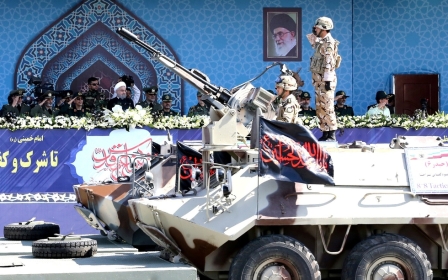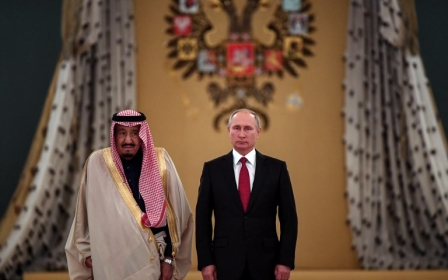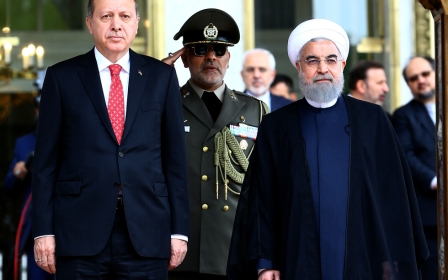Iranian president defends nuclear deal, says Trump cannot undermine it
Iranian President Hassan Rouhani defended the nuclear deal with Western powers on Saturday and said that US President Donald Trump could not undermine it.
Under the 2015 deal, Iran agreed to limit its disputed nuclear programme in return for an easing of economic sanctions.
However, Trump is expected to announce soon that he will decertify the deal, a senior administration official has said, in a step that potentially could cause the accord to unravel.
"In the nuclear negotiations and agreement, we reached issues and benefits that are not reversible. No one can turn that back, not Mr Trump or anyone else," Rouhani said at a ceremony at Tehran University marking the start of the university academic year, according to state media.
'The president isn't looking at one piece of this. He's looking at all of the bad behaviour of Iran'
Sarah Huckabee Sanders, White House press secretary
"Even if 10 other Trumps are created in the world, these are not reversible."
Trump, who has called the pact an "embarrassment" and "the worst deal ever negotiated," has been weighing whether the deal serves US security interests as he faces a 15 October deadline for certifying that Iran is complying with its terms.
The prospect of Washington reneging on the deal has worried some of the US allies that helped to negotiate it, especially as the world grapples with another nuclear crisis, North Korea's nuclear and ballistic missile development.
If Trump does not certify that Iran is in compliance, the US Congress will have 60 days to decide whether to reimpose sanctions waived under the deal. UN inspectors have verified Iranian compliance with the terms.
The White House said on Friday that Trump will announce new US responses to Iran's missile tests, support for "terrorism" and cyber operations as part of his new Iran strategy.
"The president isn't looking at one piece of this. He's looking at all of the bad behaviour of Iran," Sarah Huckabee Sanders, the White House press secretary, told reporters.
"Not just the nuclear deal as bad behaviour, but the ballistic missile testing, destabilizing of the region, number one state sponsor of terrorism, cyber attacks, illicit nuclear programme," Sanders continued.
Trump "wants to look for a broad strategy that addresses all of those problems, not just one-offing those," she said. "That's what his team is focused on and that's what he'll be rolling out to address that as a whole in the coming days."
Rouhani said on Saturday that if the United States violated the deal then it would hurt its own reputation in the international community.
"If America carries out any violations today, the whole world will condemn America. They will not condemn Iran," Rouhani said, according to state media. "Then they will say 'why did you trust America and sign an agreement with them?'"
Separately, former Iranian president Mohammad Khatami has been forbidden from attending "public political, cultural and promotional ceremonies" for a period of three months, two of his lawyers told the Iranian Labour News Agency (ILNA) on Saturday.
Khatami has long been a lightning rod of criticism for hardliners who accuse him of fomenting unrest in the protests that followed the disputed election of president Mahmoud Ahmadinejad in 2009. Local media are forbidden from quoting Khatami in articles or publishing his image.
The new restrictions were issued by Iranian security forces, Khatami's lawyers told ILNA, and there does not appear to be any judicial mechanism to dispute the restrictions.
In the lead-up to the presidential election last May, Khatami posted a message online encouraging his supporters to vote for Rouhani.
Rouhani made a reference to the new restrictions placed on Khatami during his speech Saturday but did not name him.
"If anybody repeats that people should come to the ballot box, they should be punished?" he asked, according to ILNA.
Khatami's lawyers told ILNA that the restrictions began on the first day of the Iranian month of Mehr, which is 23 September.
Middle East Eye propose une couverture et une analyse indépendantes et incomparables du Moyen-Orient, de l’Afrique du Nord et d’autres régions du monde. Pour en savoir plus sur la reprise de ce contenu et les frais qui s’appliquent, veuillez remplir ce formulaire [en anglais]. Pour en savoir plus sur MEE, cliquez ici [en anglais].




